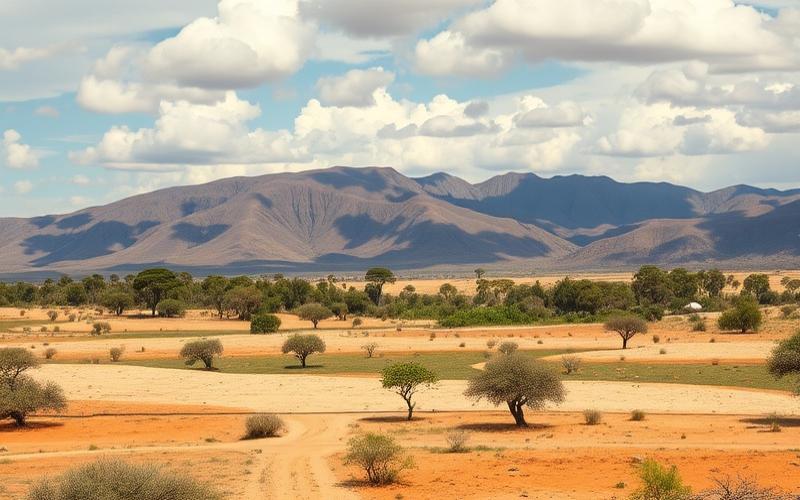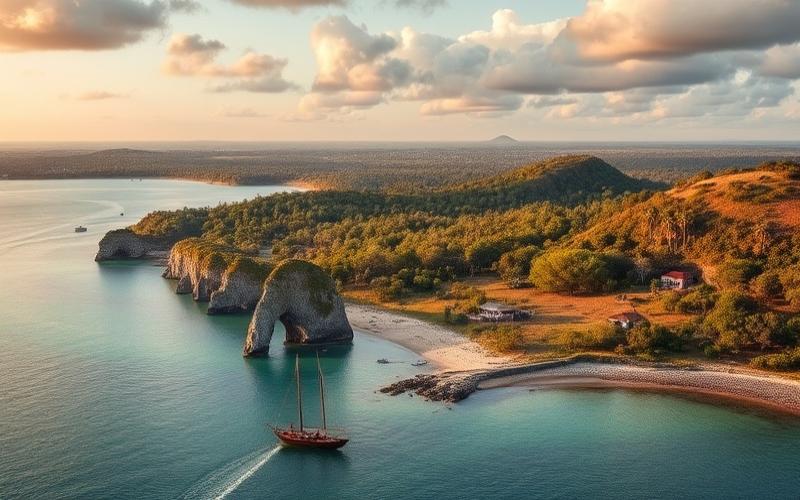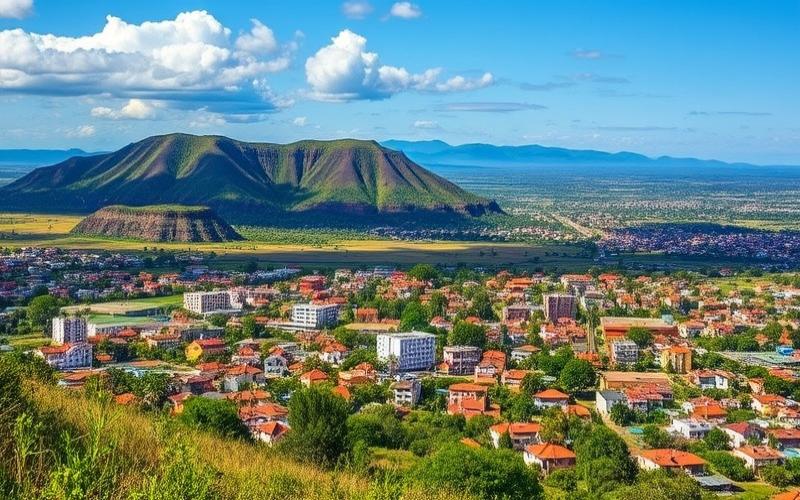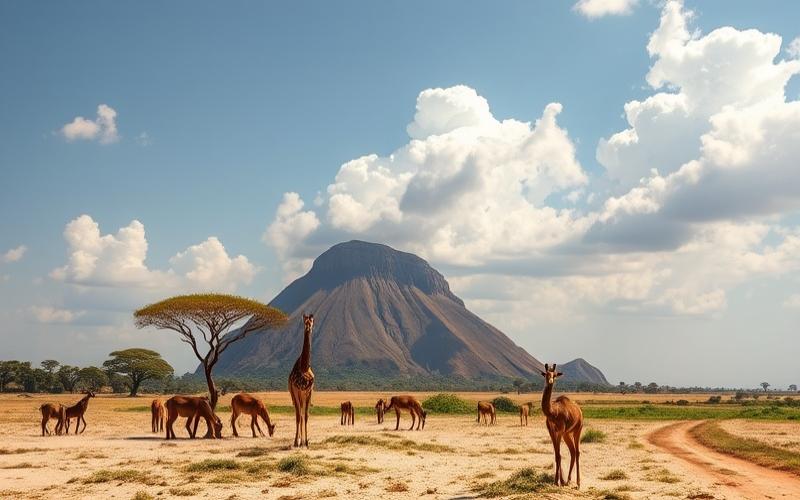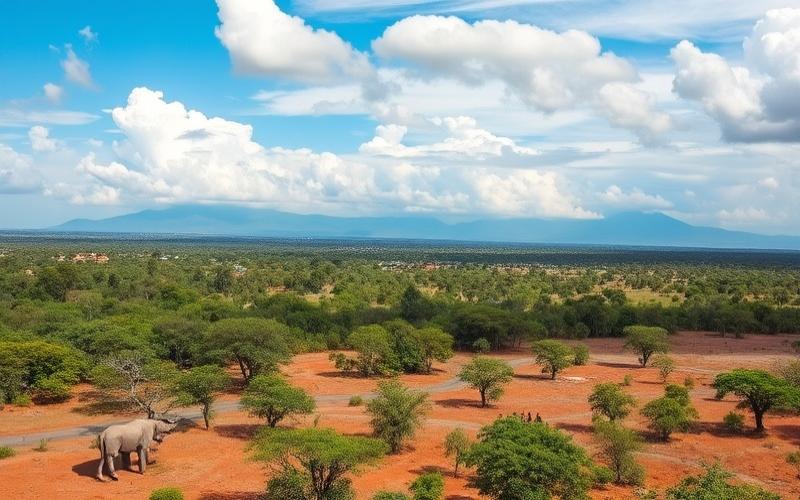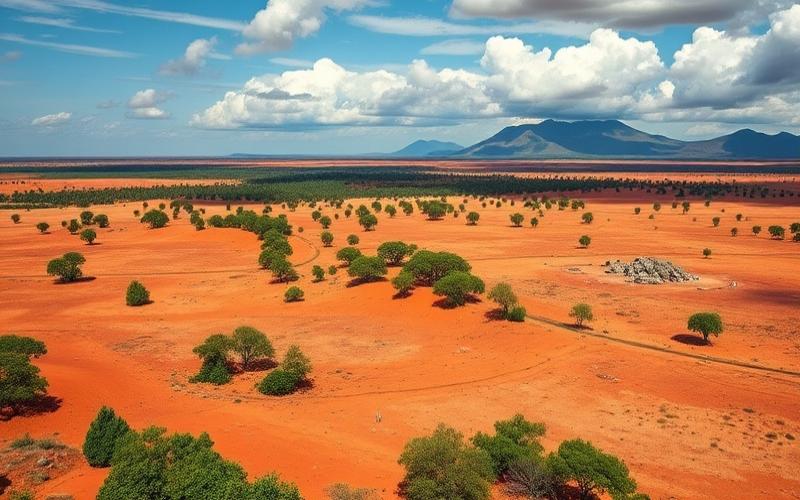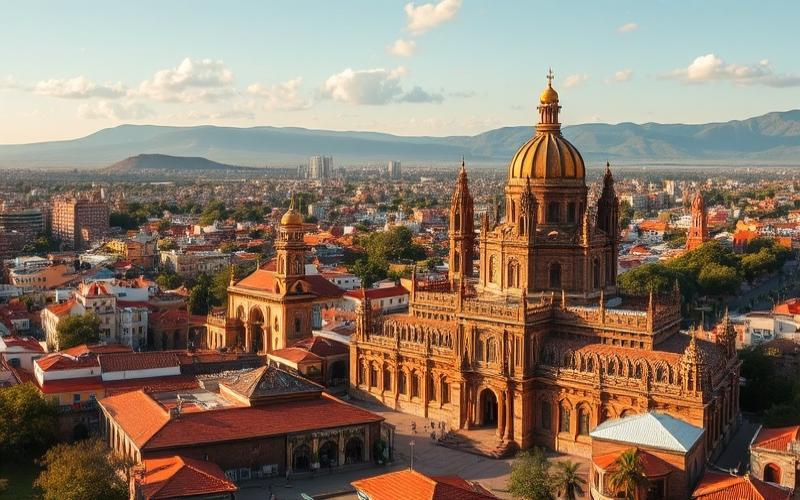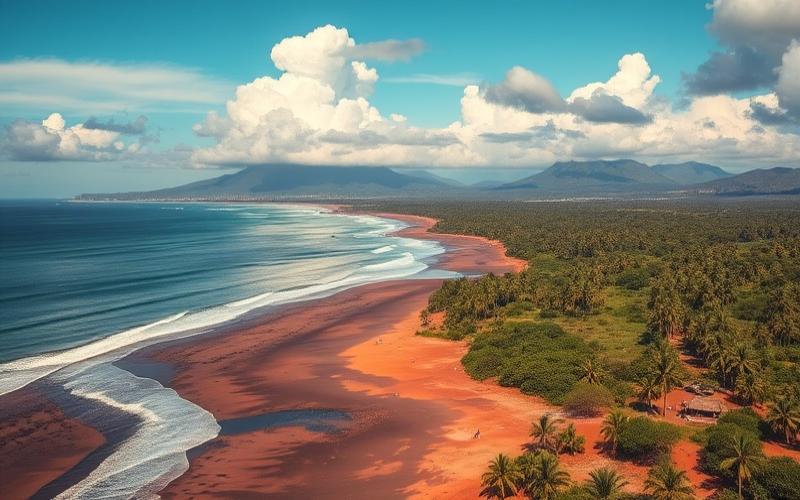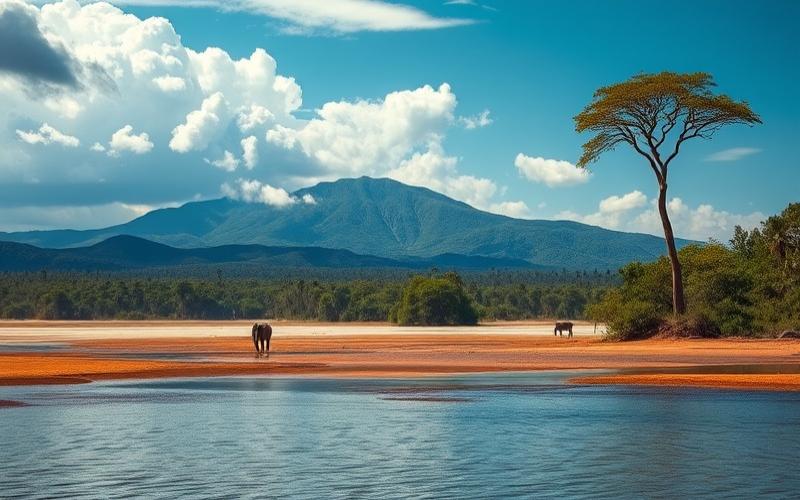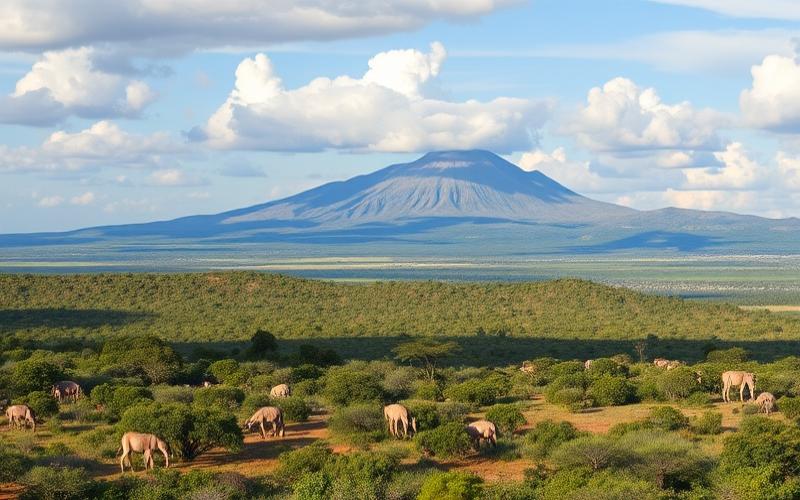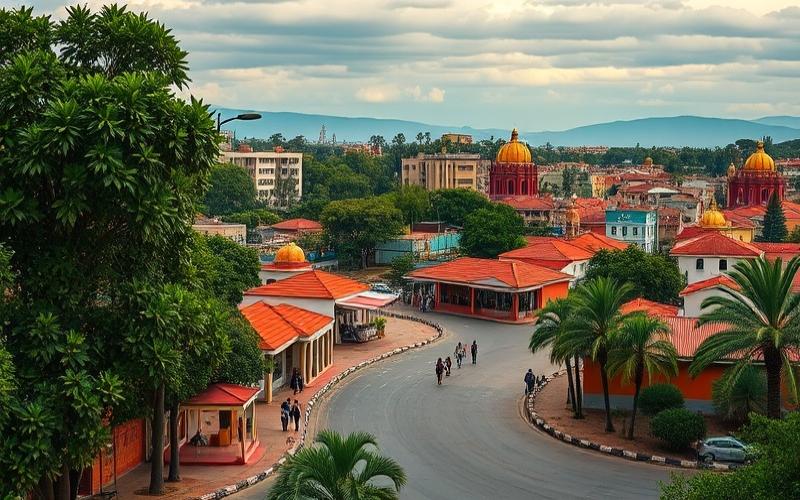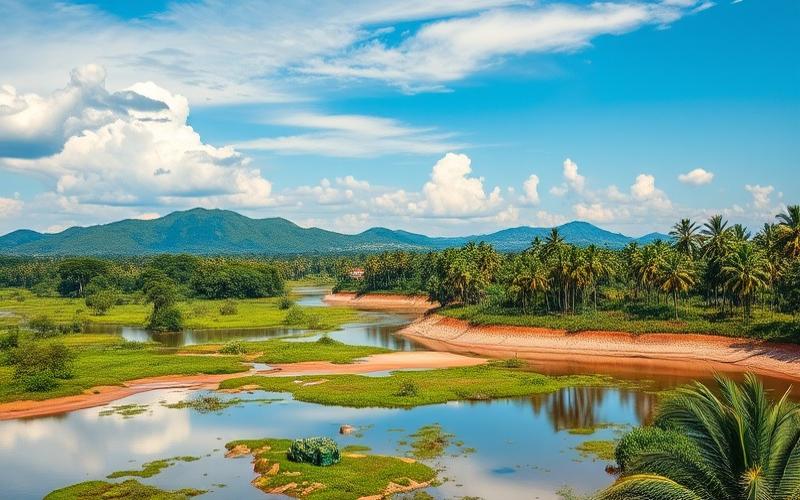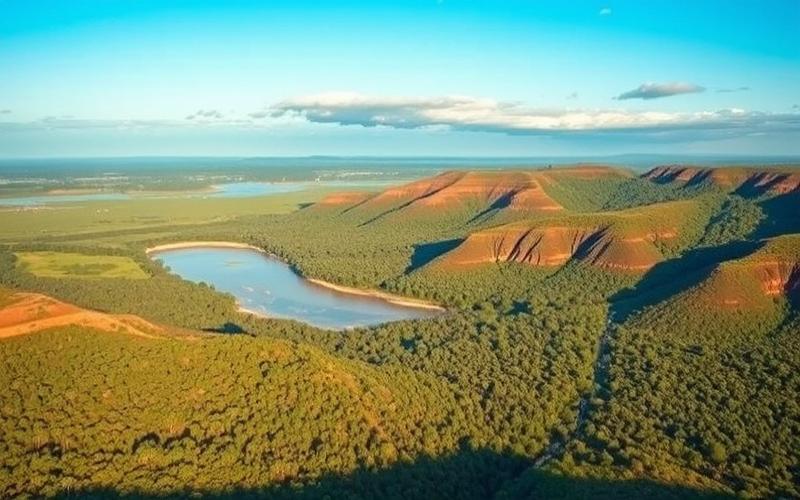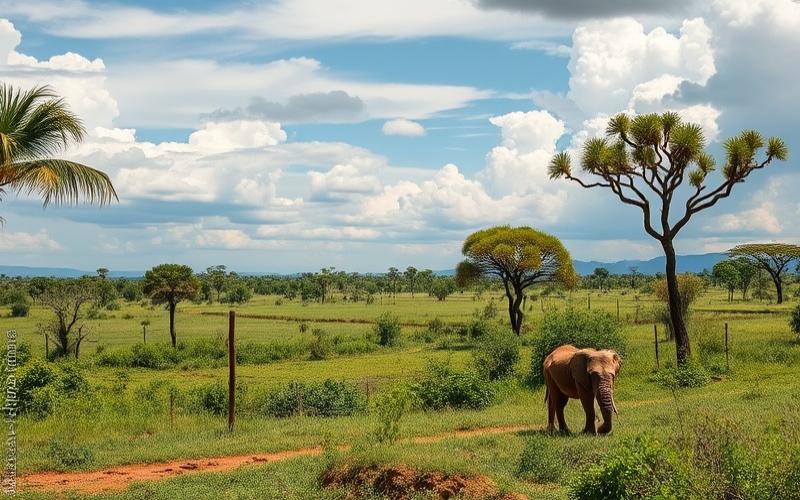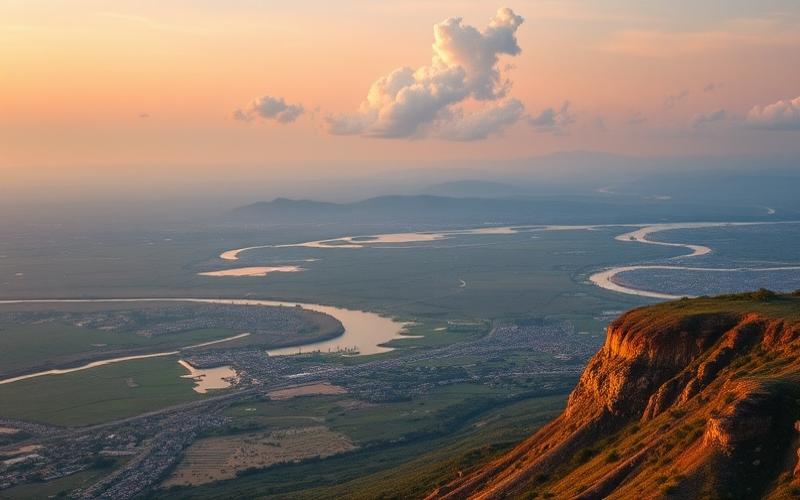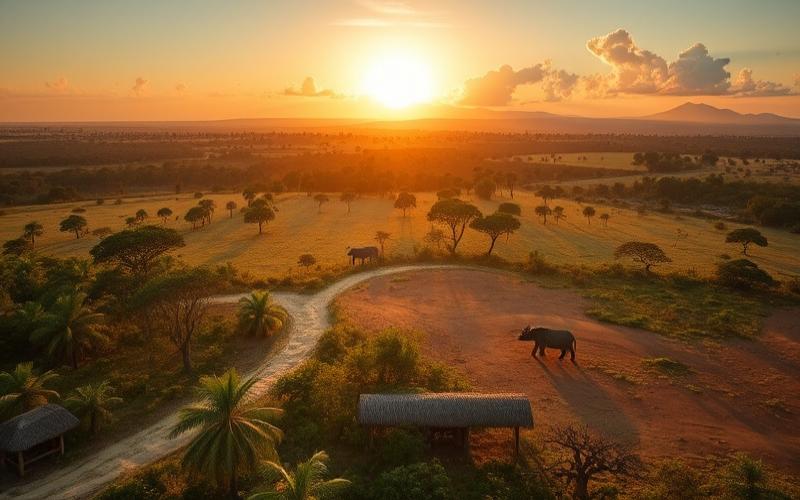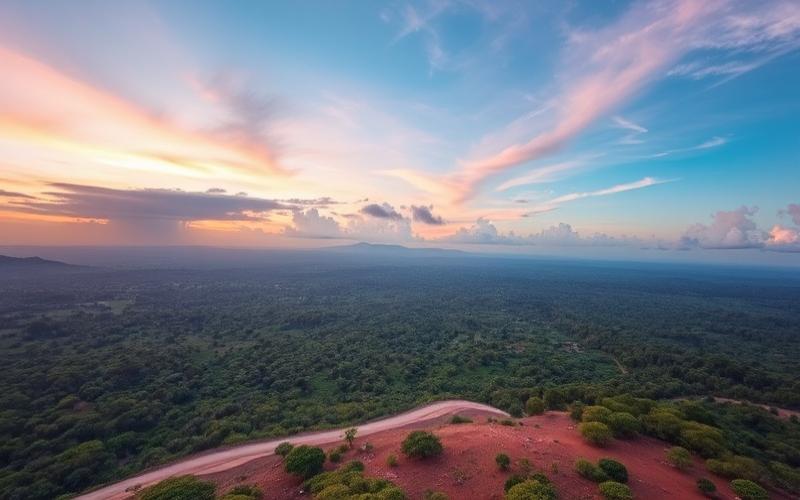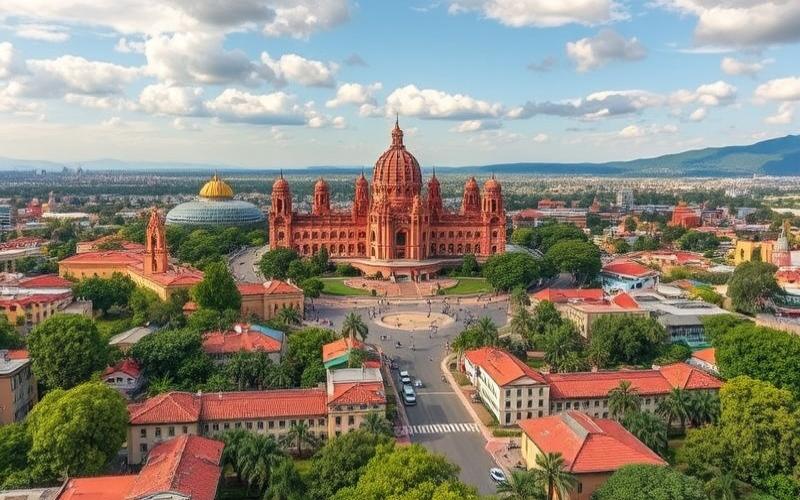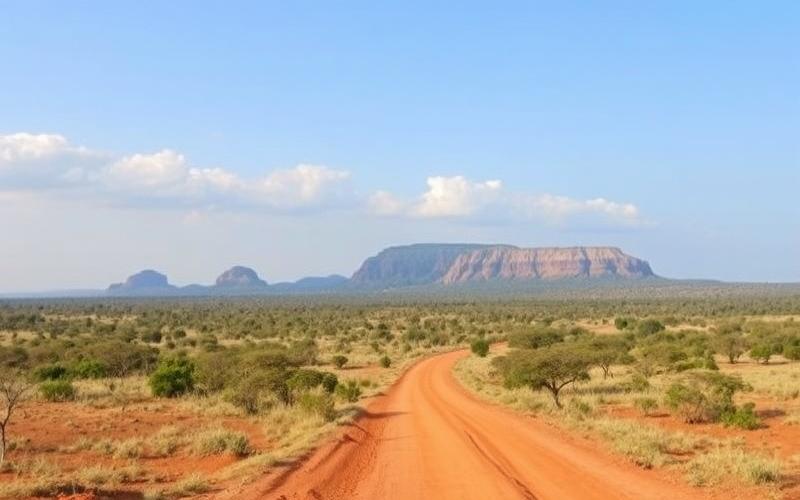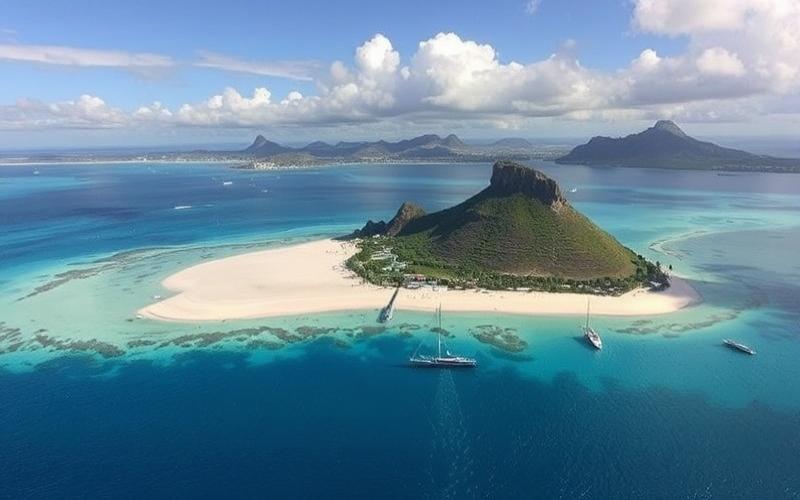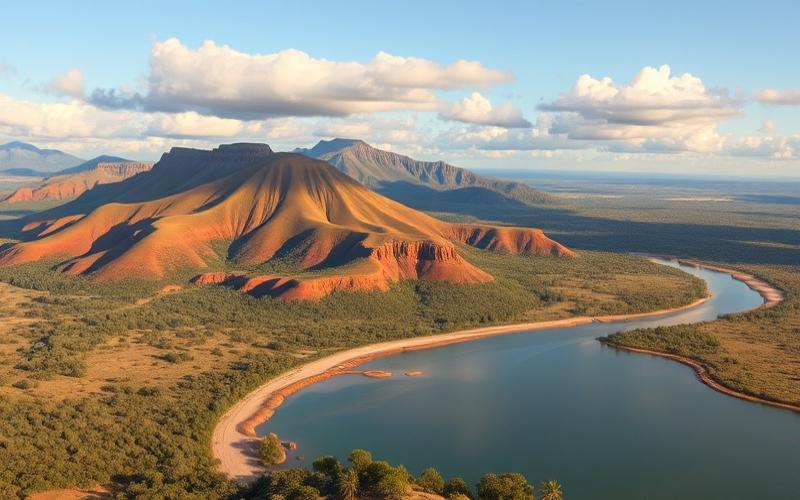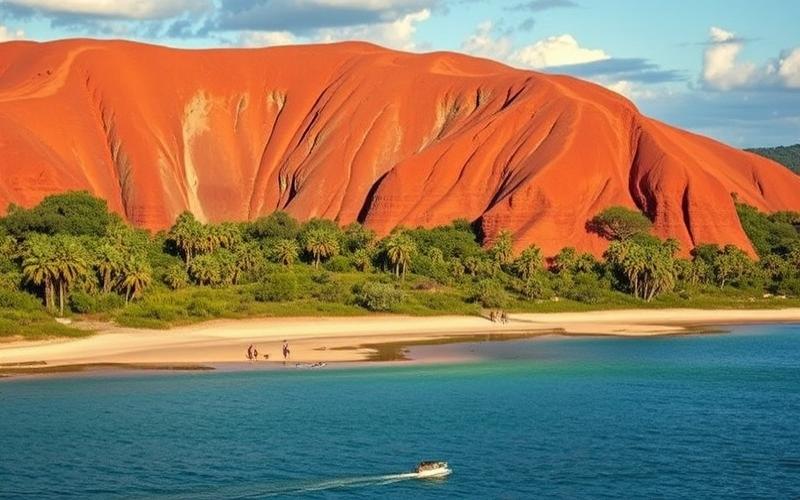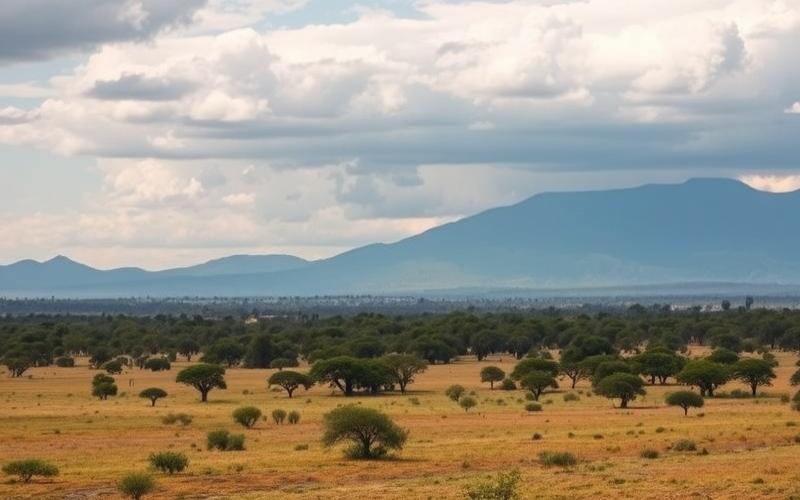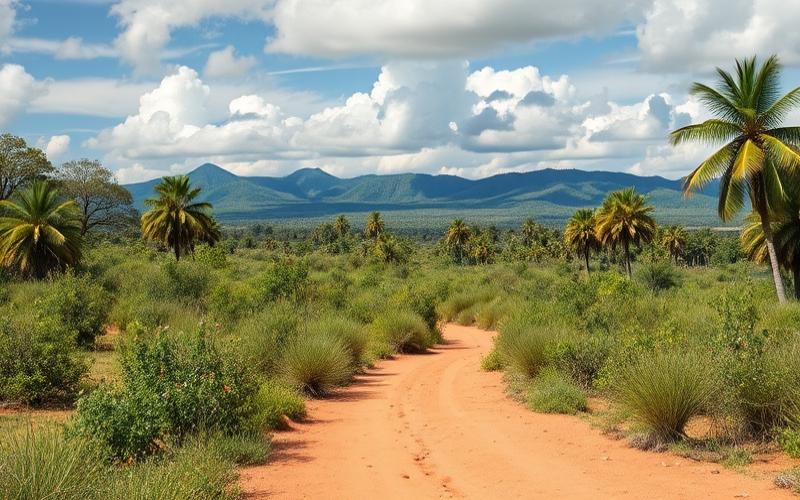
 Published on and written by Cyril Jarnias
Published on and written by Cyril Jarnias
Commercial real estate in Madagascar is currently experiencing remarkable growth, offering enticing investment opportunities for savvy investors. As the economy of the Great Island continues to expand and urbanization accelerates, the commercial real estate sector is positioning itself as a pillar of the country’s economic development. Let’s dive into the heart of this booming market and discover the promising prospects it offers.
Diverse Opportunities: Overview of Commercial Properties
The commercial real estate market in Madagascar is characterized by a diversity of assets that meet varied and constantly evolving needs. Here’s an overview of the most dynamic segments:
Shopping centers and retail parks: The growing demand for modern, comfortable shopping spaces is stimulating the development of shopping centers, particularly in major cities like Antananarivo and Toamasina. These complexes attract not only local consumers but also tourists, offering a mix of retail, dining, and entertainment.
Office buildings: With the rise of the tertiary sector and the growing presence of international companies, demand for quality office space is steadily increasing. Business districts in Antananarivo, such as Ankorondrano and Andraharo, are particularly sought after for this type of investment.
Warehouses and logistics zones: The development of e-commerce and improvements in transportation infrastructure are driving demand for modern logistics spaces, particularly around major ports like Toamasina.
Hotels and tourist complexes: The booming tourism sector offers excellent opportunities, particularly in coastal areas like Nosy Be or regions with high ecotourism potential.
Healthcare real estate: With a growing population and increased demand for quality healthcare, private clinics and medical centers represent a promising segment.
- Coworking spaces: The flexible work trend is gaining ground, creating demand for modern, well-equipped coworking spaces.
- Student housing: The increasing number of students in major university cities opens up interesting prospects for this type of investment.
Good to know:
Diversifying your commercial real estate portfolio helps spread risk and take advantage of different market dynamics.
Profitability and Risk Management: Keys to Success
Investing in commercial real estate in Madagascar can prove very profitable but requires a strategic approach and a good understanding of local issues.
Attractive returns: Rental yields for commercial real estate in Madagascar are generally higher than in many mature markets, potentially reaching 8% to 12% for well-located, quality assets. Shopping centers and Class A office buildings in Antananarivo’s business districts are among the most profitable investments.
Potential capital gains: Sustained economic growth and rapid urbanization suggest significant appreciation in the value of commercial real estate properties in the medium and long term, particularly in developing areas.
Income diversification: Commercial real estate offers the possibility to diversify income sources, including rents, ancillary services, and potential capital gains upon resale.
However, these opportunities come with risks that should be carefully assessed and managed:
Political and regulatory risk: Although the political situation has stabilized in recent years, it’s crucial to remain vigilant about regulatory changes that could impact the real estate sector.
Currency risk: Fluctuations in the Ariary against foreign currencies can affect investment profitability for international investors.
Vacancy risk: Thorough analysis of local demand and market trends is essential to minimize the risk of rental vacancies.
Infrastructure challenges: Despite notable improvements, some areas may still suffer from infrastructure shortcomings (electricity, water, roads), which can impact property value and attractiveness.
To optimize profitability and minimize risks, it’s recommended to:
– Partner with experienced local partners – Diversify your portfolio across different asset types and locations – Invest in quality properties that are well-located and meet international standards – Implement professional and proactive asset management
Good to know:
Thorough due diligence and reliance on local experts are essential to navigate the complexities of the Malagasy market and maximize profitability potential.
Trends and Prospects: A Rapidly Evolving Market
The commercial real estate sector in Madagascar is undergoing rapid evolution, driven by several fundamental trends shaping its future:
Digitalization and innovation: The growing adoption of digital technologies is transforming how commercial spaces are designed, managed, and used. Shopping centers are increasingly integrating digital experiences to attract and retain customers, while office spaces are adapting to new forms of hybrid work.
Sustainable development: Environmental awareness is gaining ground, pushing developers to adopt more sustainable construction practices and integrate energy efficiency solutions into their projects. Green and certified buildings are becoming major assets for attracting tenants and investors.
Mixed-use development: Mixed-use real estate projects, combining commercial spaces, offices, and sometimes residential units, are gaining popularity. This approach creates dynamic urban environments and reduces risk by diversifying income sources.
E-commerce boom: Although still in its early stages in Madagascar, online commerce is already influencing the commercial real estate sector, driving demand for modern warehouses and urban distribution centers.
Focus on customer experience: Shopping centers and retail spaces are evolving into lifestyle and experience destinations, incorporating more leisure, dining, and event offerings to differentiate themselves from online commerce.
Decentralization: With urban growth, new commercial hubs are emerging on the outskirts of major cities, offering investment opportunities in developing areas.
Sector professionalization: The commercial real estate market in Madagascar is attracting more international players, bringing with them high standards of quality and management. This trend contributes to market maturation and transparency.
Adaptation to climate change: Given Madagascar’s vulnerability to extreme weather events, building resilience is becoming an increasingly important criterion in the design and valuation of commercial real estate assets.
These trends open new perspectives for visionary investors. Projects that can anticipate and adapt to these developments will be best positioned to capture the future value of the market.
Good to know:
Investors who integrate these trends into their investment and asset management strategy will be better equipped to succeed long-term in Malagasy commercial real estate.
Commercial real estate in Madagascar offers attractive growth and return potential for investors ready to commit to this dynamic market. The diversity of opportunities, coupled with a growing economy and rapid urbanization, creates an environment conducive to strategic investments. However, as in any emerging market, a cautious approach, thorough due diligence, and a fine understanding of local specificities are essential to successfully navigate this rapidly evolving ecosystem.
Challenges abound, from managing political and economic risks to the need to adapt projects to changing user needs and sustainability requirements. Nevertheless, for investors capable of adopting a long-term vision and surrounding themselves with the right local partners, the Malagasy commercial real estate market offers unique opportunities to participate in the country’s economic development while potentially benefiting from high returns.
As Madagascar continues to establish itself as an attractive investment destination in Africa, the commercial real estate sector is set to play a key role in the country’s urban and economic transformation. Investors who can seize these opportunities with discernment and innovation will be well positioned to reap the benefits of this promising market’s future growth.
Disclaimer: The information provided on this website is for informational purposes only and does not constitute financial, legal, or professional advice. We encourage you to consult qualified experts before making any investment, real estate, or expatriation decisions. Although we strive to maintain up-to-date and accurate information, we do not guarantee the completeness, accuracy, or timeliness of the proposed content. As investment and expatriation involve risks, we disclaim any liability for potential losses or damages arising from the use of this site. Your use of this site confirms your acceptance of these terms and your understanding of the associated risks.

